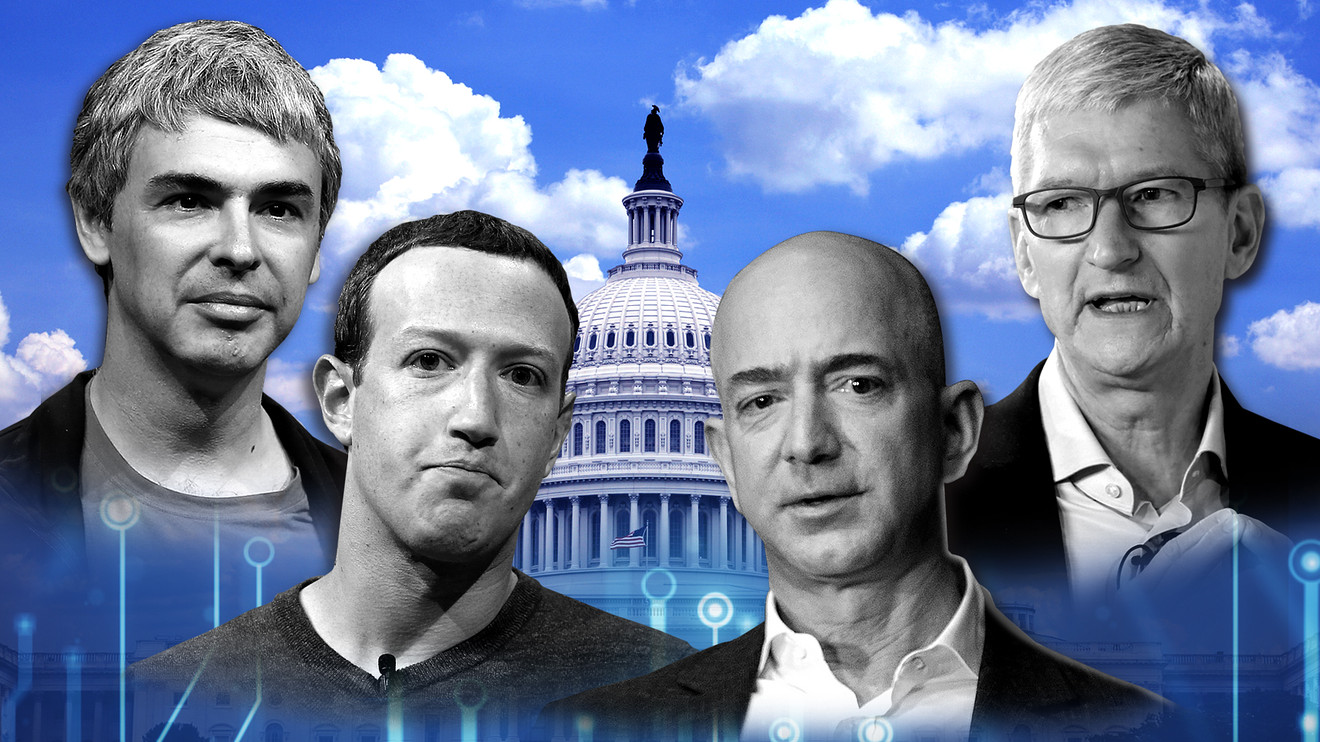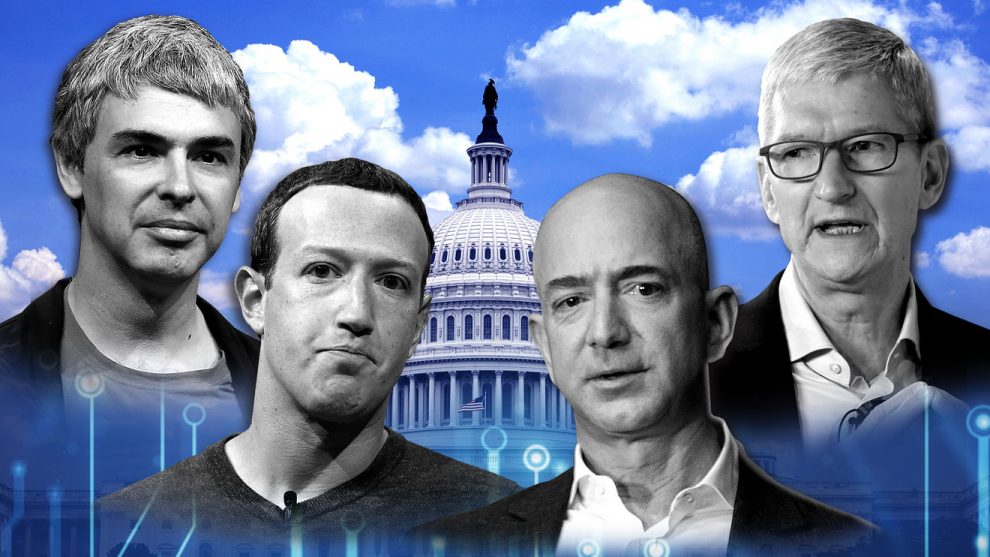
The Justice Department’s broad-based inquiry into tech companies could be a politically motivated saber-rattling investigation or a battle between two government agencies, but that doesn’t make it any less of a concern to investors in the most valuable companies in the U.S.
Tuesday’s news of a new, seemingly broader investigation into Big Tech adds another big cloud for investors in Facebook Inc FB, +0.02% Apple Inc. AAPL, +0.78% Alphabet Inc.’s GOOG, +0.72% GOOGL, +0.78% Google and Amazon.com Inc. AMZN, +0.45% , even if some believe it is a politically motivated move that will not end in serious charges or changes.
“Without much more information, this sounds more like the politics that the antitrust division has been playing for the last couple of years,” said Larry Downes, a senior industry and innovation fellow at the McDonough School of Business at Georgetown University. “They know antitrust law has not changed in 20 years.”
See also: Four reasons why antitrust actions will likely fail to break up Big Tech
To prove that a company has monopoly power, U.S. antitrust statutes requires proof that a company behaved in ways that led to price increases for consumers, something that the government was not able to prove when it tried to halt AT&T Inc.’s T, -0.12% $81 billion acquisition of Time-Warner last year. That will be hard to accomplish for Big Tech — which offers many products for free — but with Democratic presidential candidates going after the tech companies repeatedly as they campaign against President Donald Trump, the Republican administration may have felt forced to do something big.
“The tech companies are everybody’s favorite bad guy right now,” Downes added. “On the campaign trail, the candidates are playing tough on tech as a way to play on the anxiety of consumers. It’s all for show. Until Congress changes the law, there is no there there. They know that.”
In an unusual statement, the Department of Justice confirmed that it is “reviewing whether and how market-leading online platforms have achieved market power and are engaging in practices that have reduced competition, stifled innovation, or otherwise harmed consumers.”
See also: Big Tech was built by the same type of antitrust actions that could now tear it down
It was not yet completely clear whether this broader review — which is seeking information and comments from competitors, or “industry participants” and consumers — is separate from or supersedes news early last month that the Big Four in tech were the target of separate investigations by the DOJ and the FTC, which had divvied up the cases between them. The four-paragraph statement by the DOJ is remarkably free of any details, including what companies are actually targeted — Apple and Microsoft could be safe based on the language, but will Twitter Inc. TWTR, +0.85% be lumped in as social-media is investigated?
Beyond Democrats vs. Republicans, there are some who believe that the new investigation is part of interagency squabbles between the Justice Department and Federal Trade Commission, which reportedly took time splitting up authority over individual antitrust probes before Justice declared its own inquiry into the entire sector Tuesday.
Donald Polden, dean emeritus and professor of law at Santa Clara University’s School of Law, said the DOJ and the FTC “are in the middle of a snit” about a recent U.S. District Court’s ruling on Qualcomm Inc. QCOM, -2.41%
QCOM, -2.41% The antitrust suspects: Facebook and Apple appear to be most at risk
“They have long history of cooperating and working together,” he said. “Whether that is related to some inner-agency dispute or a difference of opinion, I’d love to be able to tell you where the smoking gun is. But it seems very political.”
No matter the motivations behind the new investigation, it further clouds the potential for some of the largest and most prominent American companies, especially Facebook (already facing a $5 billion fine from the FTC), Google and Amazon. These inquiries are never completed quickly, and the rhetoric only seems to be ramping up as we head toward 2020, so it could remain a scary unknown for quite a while.












